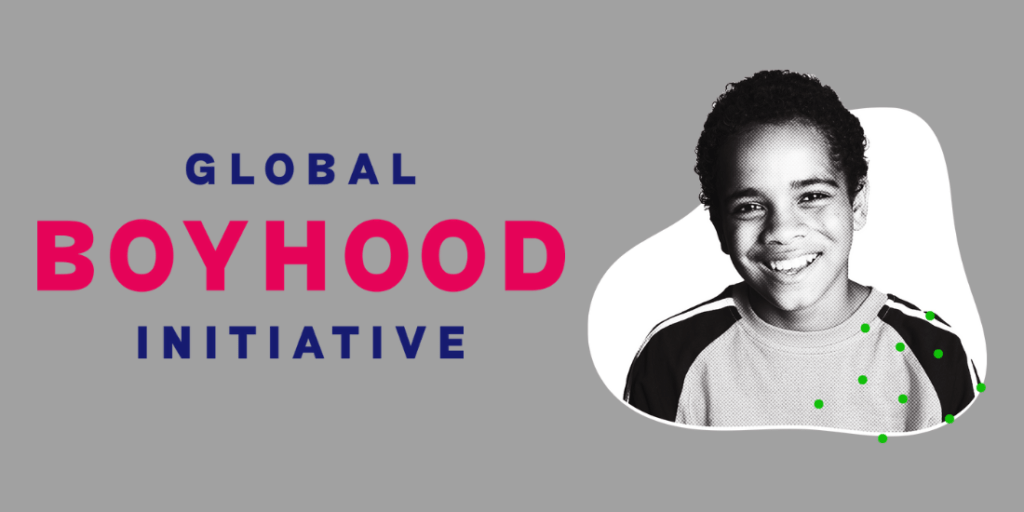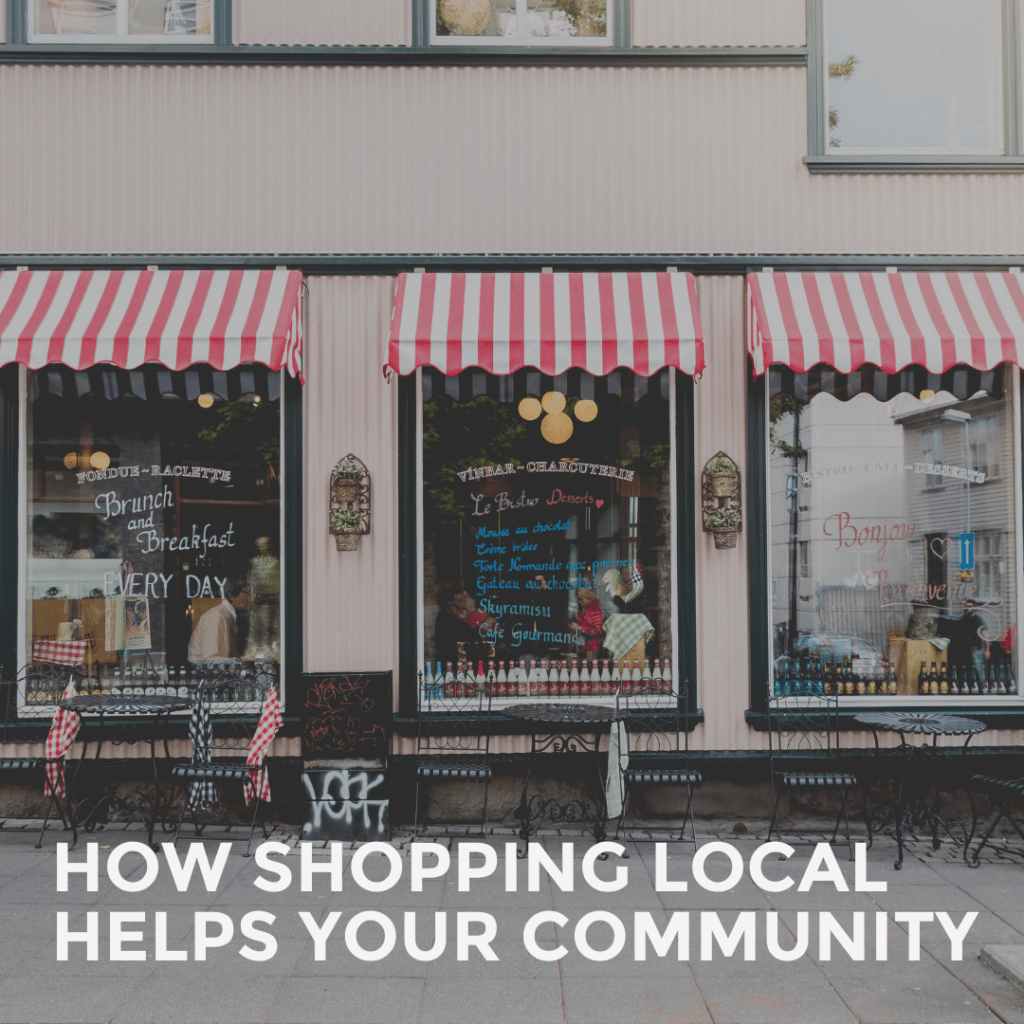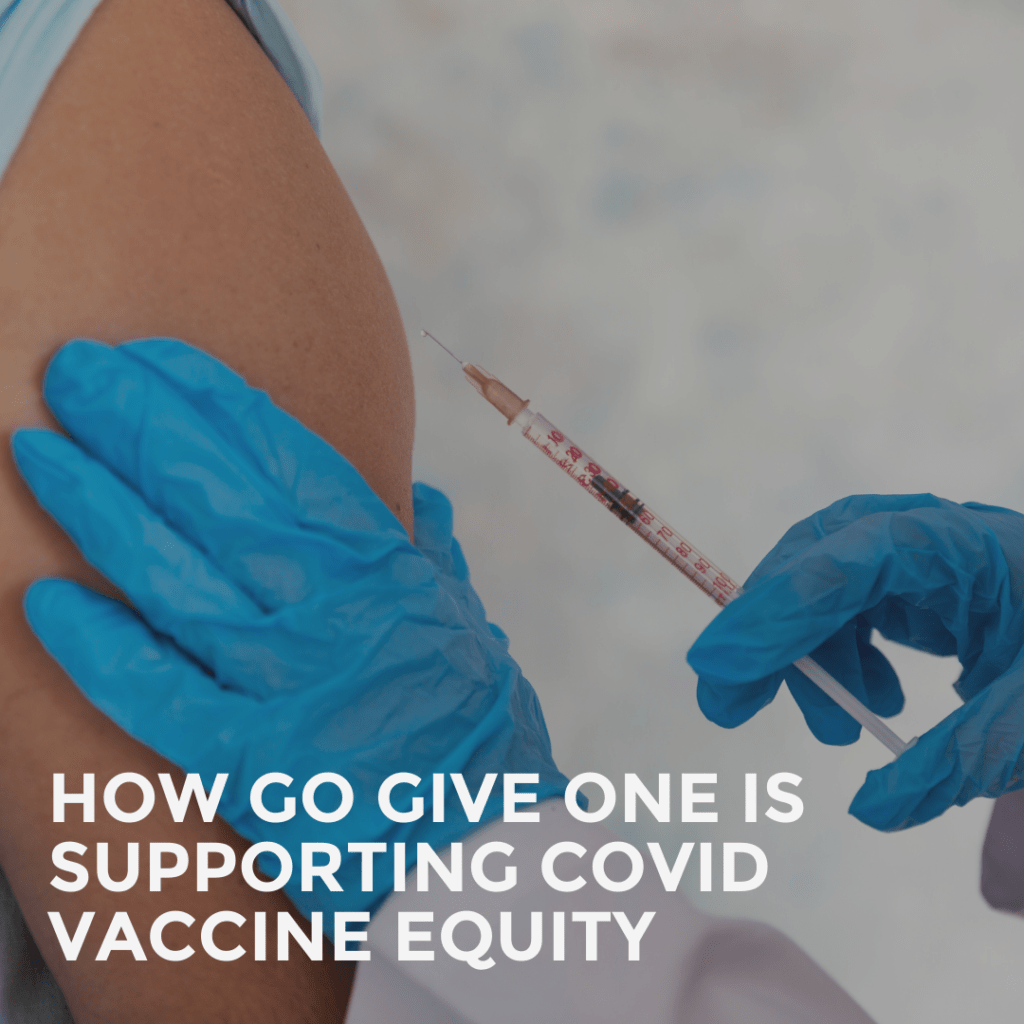Every once in a while, you get a client with the patience and commitment to address the root cause of a systemic social issue, like violence against women. It takes bravery as an organization to deviate from the norm.
We were lucky enough to find that with Promundo and the Kering Foundation, who were determined to end violence against women by starting at the roots: how we raise our boys.
To address the systemic causes of an issue, you need to dig in and deepen your own understanding beyond assumptions and preconceived notions. For us, that meant starting with research to supplement and build off Promundo’s decades’ worth of thought leadership and research around masculinity and fatherhood.
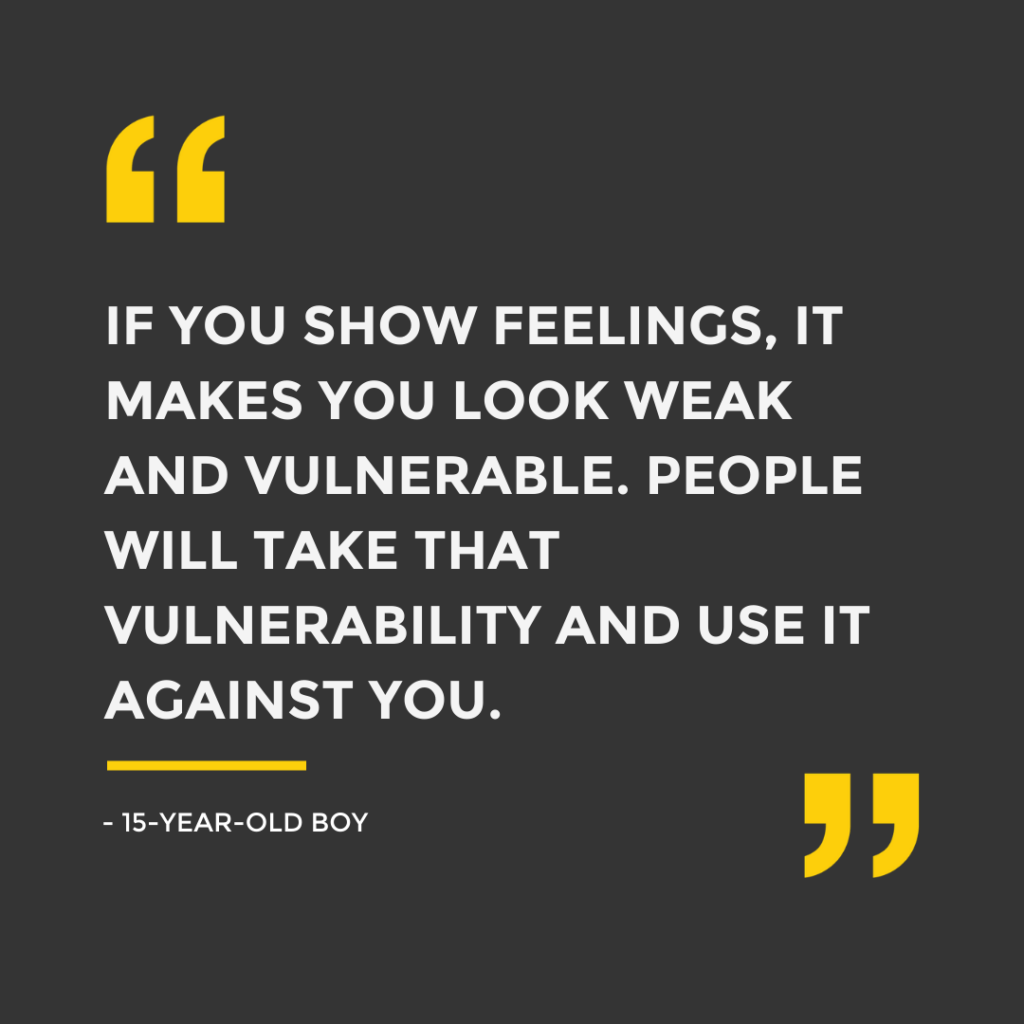
- We interviewed experts in the field and practitioners who work with boys about what they felt was missing, what boys needed, and what work and models they’d found successful.
- We talked to parents and boys themselves from diverse socio-economic backgrounds, ethnicities, and political leanings about their views on gender norms and community pressures.
- Knowing how media helps to establish and empower stereotypes, we partnered with the Geena Davis Institute on Gender in Media to discover the messages about masculinity that boys were internalizing from popular television programming.
The insights we gleaned were informative and, at times, heartbreaking. You’re welcome to read the full reports here, but we’ve summarized a breakdown below:
- 70% of parents say their sons don’t feel comfortable sharing when they feel scared or lonely (citation).
- 75% of boys aged 14 to 19 feel society expects them to be strong. 40% feel pressured by society to be aggressive or violent when they’re angry (citation).
- The most prominent stereotype about masculinity depicted in children’s television is of boys and men as aggressors. For example, in boys’ TV, male characters commit 62.5% of violent acts against another person (citation).
- Male characters in popular boys’ TV shows are less likely than female characters to show emotions, including empathy (22.5% v. 30.6%), happiness (68.3% v. 75.2%), and even anger (28.8% v. 36.6%) (citation).
- Boys say they want their parents to listen and understand them more (citation).
- The most commonly reported fear that keeps boys from sharing their feelings with friends is that what they share might “be used against [them].” (citation).

It was clear that boys need to see healthy emotional expressions modeled for them. That isn’t happening as much as it needs to. What the data also made clear was that boys need the adults in their lives to not only let them know that it’s okay to express themselves, but to actually demonstrate healthy expressions of emotions and vulnerability. We discovered that, in an effort to help, parents sometimes attempt to initiate structured conversations about feelings in ways that might feel overly formal and, in that, challenging for boys to traverse. As a result, boys often feel cornered and unsure how to respond.
It made us realize: it takes bravery to have these conversations, to be vulnerable, to share one’s emotions in healthy ways, to reject stereotypes. It takes bravery, not just for boys, but also for the adults raising them—often, the adults initiating these conversations have internalized many of the same stereotypes from which they’re trying to unleash their boys.
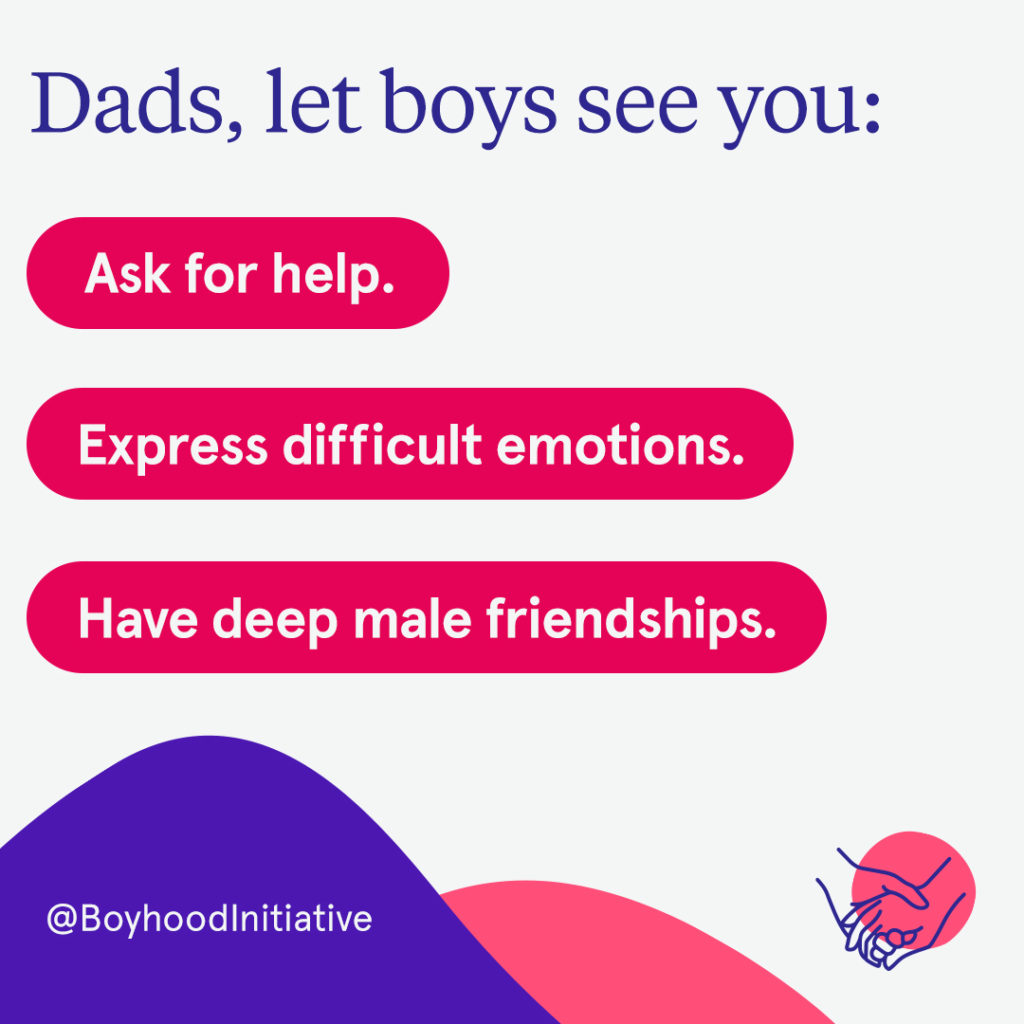
And from this, the Global Boyhood Initiative was born.
First, we built a campaign hub with all our resources and research, to share everything we learned in full transparency with stakeholders and caretakers. The Global Boyhood Initiative is part of a larger ecosystem of change-makers and we wanted all participants to be fully informed about the issue of violence against women and its longstanding roots.
Next, we understood that vulnerable, emotional, empathic conversations are hard to have and hard to have regularly. It’s a skill one has to practice like anything else. To make that practice easier and more regular for both boys and the adults in their lives, the Global Boyhood Initiative put together educational and practical conversation starter decks for 4 to 6-year-olds, 7 to 9-year-olds, and 10 to 13-year-olds.
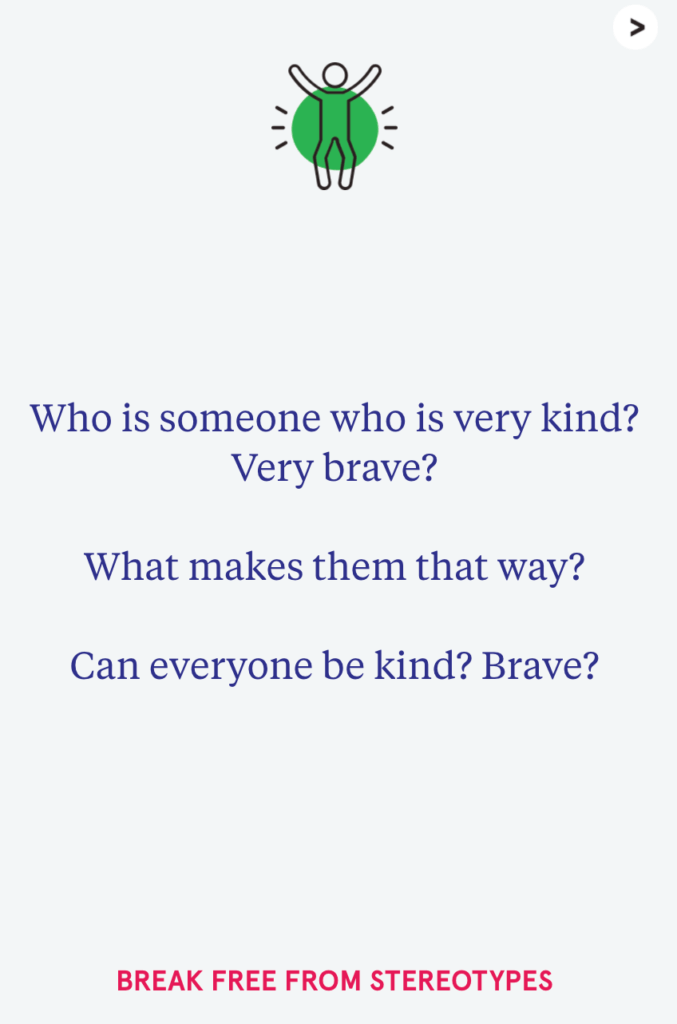
To create a positive and honest narrative about what it means to be a boy and, eventually, a man, we launched the #BraveryIs campaign, a digital-first campaign that aimed to meet boys, parents, and caretakers right where they were.
From the Global Boyhood Initiative research partnership with the Geena Davis Institute, we knew how important media is in shaping perceptions of masculinity, specifically among boys. Rather than try to fight that reality, we strategized on how to use it to our advantage by tapping into one of our core capabilities as an agency: cause influence. We identified several public figures, celebrities, and influential voices who could authentically speak to the issues we were navigating in ways that would resonate with our target audience. Basing questions off of our conversation starter decks, our team produced a four-episode #BraveryIs IGTV series featuring artists like Kevin Bacon, Ziggy Marley, and Chelsie Hill.
To make these emotionally honest conversations even more accessible, we put some of the conversation starters in an Instagram filter, which was supported by dancer James B. Whiteside and actor/director Elizabeth Banks.
Overall, the campaign was a big success, drawing 8M Instagram impressions, nearly 100K video views, and integrating 9 influential public figures (check out the full case study here). But Promundo’s Global Boyhood Initiative with the Kering Foundation is just getting started! Systems change requires sustained effort over time. Follow along @boyhoodinitiative on Instagram and keep up the tough conversations.
Getting Personal
Is there a boy that comes to mind for you as you read this? Here are some actionable insights that we were able to draw from our experience on this project. We hope you find it helpful.
- It’s important for adults to model healthy masculinity for boys. That means being open about love, fear, vulnerability, and healthy friendships among men.
- Acknowledge that it’s okay for boys to feel vulnerable and that it takes bravery to be open. Try to listen and empathize, rather than problem-solve.
- Often, boys hear that the challenges they face today are nothing compared to the challenges faced by their parents. This may stifle conversation. Consider sharing about your personal challenges with a focus on how you felt—not just what you did—without drawing comparisons.
To stay up to date on the latest from Entertain Impact, subscribe to receive our emails and follow us on social media.
SIMILAR BLOGS:

